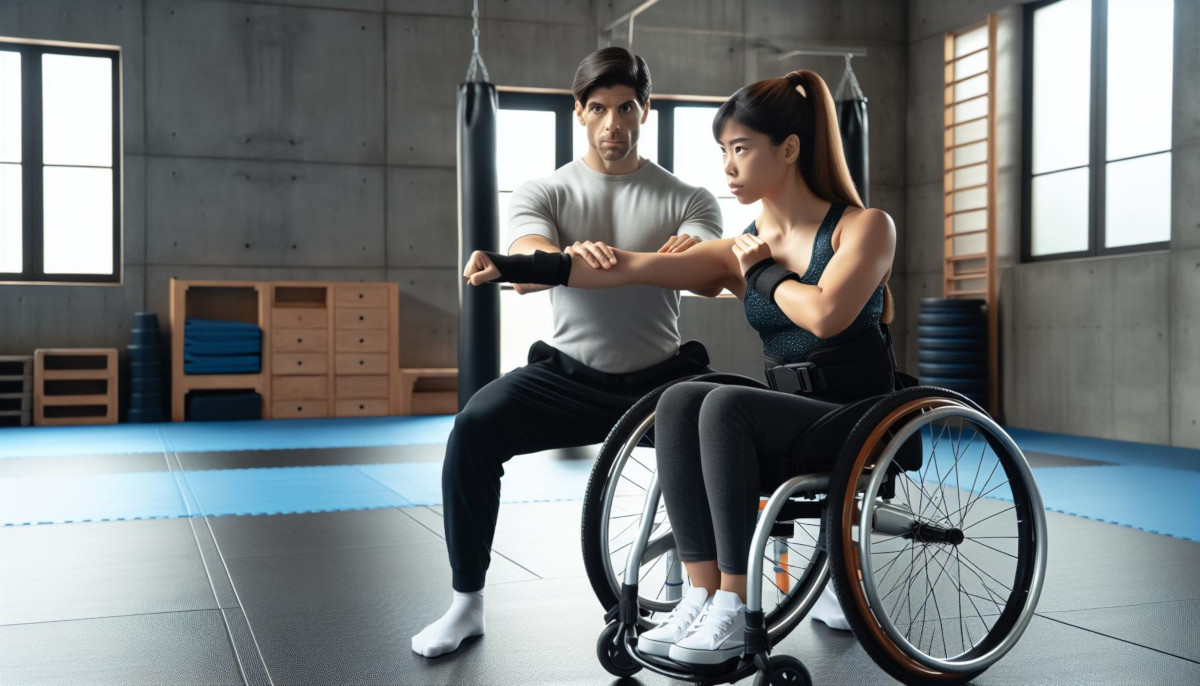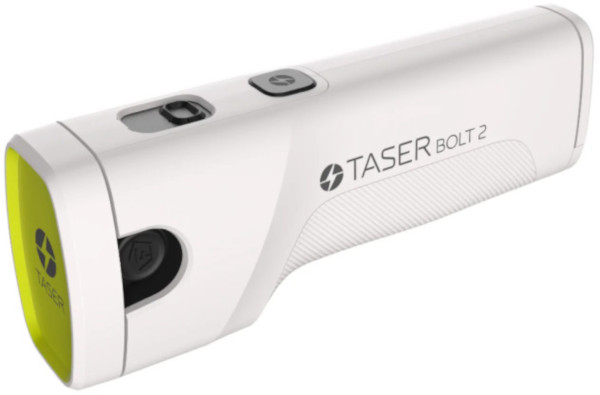Self Defense for Disabled

Why Self-Defense Matters for People with Disabilities
Everyone has the right to feel safe, including individuals with disabilities. While mobility challenges or sensory impairments may present unique self-defense obstacles, there are effective techniques and tools designed to empower you.
Self-defense for disabled individuals isn’t about overcoming limitations—it’s about leveraging your strengths and using adaptive strategies to protect yourself. Whether you use a wheelchair, walker, or other assistive devices, you can develop skills and strategies that work for you.
Key Takeaways for Self-Defense:
✔ Stay aware of your surroundings to avoid dangerous situations.
✔ Use assistive devices as defensive tools (e.g., canes, personal alarms, TASER devices).
✔ Learn simple, effective self-defense techniques that fit your mobility level.
✔ Understand your legal rights regarding self-defense.
♦ Protect yourself with the right tools! Browse our selection of self-defense products for individuals with disabilities. Shop Now
Top Self-Defense Strategies for Disabled Individuals

1. Adaptive Martial Arts & Self-Defense Training
You don’t need full mobility to defend yourself effectively. Adaptive martial arts programs offer modified techniques for individuals with mobility limitations.
✅ Adaptive Brazilian Jiu-Jitsu (BJJ): Focuses on using leverage, balance, and positional control to defend against an attacker.
✅ Wheelchair Self-Defense: Teaches techniques for striking, blocking, and controlling an assailant while seated.
✅ Situational Awareness Training: Helps you recognize threats early and avoid confrontations.
✦ Tip: Search for adaptive self-defense classes in your area or explore online training courses designed for people with disabilities.
2. Using Assistive Devices as Self-Defense Tools
Everyday mobility aids can double as self-defense weapons:
✔ Canes & Walking Sticks – Use them to block, strike, or push away an attacker.
✔ Personal Alarms & Whistles – A loud 120+ decibel alarm can startle an attacker and alert others to your situation.
✔ TASER Devices & Stun Guns – Legally available in many states, these non-lethal weapons provide an effective deterrent.
✔ Flashlight Stun Batons – Combines a self-defense tool with a bright flashlight for visibility in low-light situations.
The TASER Bolt 2 Energy Weapon
♦ Browse self-defense tools designed for mobility and accessibility! Shop Now
3. Mental Preparedness & Situational Awareness
Being mentally prepared can be just as important as physical techniques.
✦ Tips for Staying Safe:
✔ Trust Your Instincts – If something feels off, take precautions.
✔ Be Aware of Your Surroundings – Stay alert in unfamiliar places.
✔ Identify Escape Routes – Know the quickest way out of a situation.
✔ Use De-Escalation Techniques – Words and calm but firm body language can sometimes diffuse a potential threat.
♦ Technology Can Help! Use safety apps that provide real-time location tracking and emergency alerts for added security.
Legal Considerations for Self-Defense
Understanding self-defense laws ensures you stay within legal boundaries when protecting yourself.
✅ Your Rights: Under self-defense laws like "Stand Your Ground" (varies by state), you are legally allowed to defend yourself if you feel threatened.
✅ Americans with Disabilities Act (ADA): Protects your right to personal safety.
✅ Legal Representation: If a self-defense incident occurs, seek an attorney familiar with disability rights and self-defense laws.
✦ Tip: Research your state's self-defense laws or consult a legal expert for guidance.
Finding the Right Self-Defense Training & Resources
If you want to take your self-defense skills further, consider:
✔ Online Training Platforms – Adaptive self-defense courses available anytime, anywhere.
✔ Community Workshops & Seminars – Hands-on training tailored for individuals with disabilities.
✔ Support Networks – Join forums or Facebook groups dedicated to self-defense for disabled individuals.
♦ Want to learn more? Check out our self-defense tools and training resources. Shop Now
Final Thoughts: Take Control of Your Safety
Self-defense isn’t about strength—it’s about being prepared and using the right tools to stay safe. By leveraging your abilities, training in adaptive techniques, and using assistive devices effectively, you can confidently navigate the world with greater security.
✔ Stay aware.
✔ Stay prepared.
✔ Stay empowered.
➡ Ready to take control of your safety? Explore our best self-defense tools for disabled individuals today! Shop Now
Add your comment now!
Post CommentRecent posts
-
03/12/2025Best Stun Guns for Self-Defense in 2025
-
03/11/2025How to Prevent Kidnapping – Top Safety Tips
-
03/11/2025What Do Rapists Look For? 10 Red Flags to Avoid


